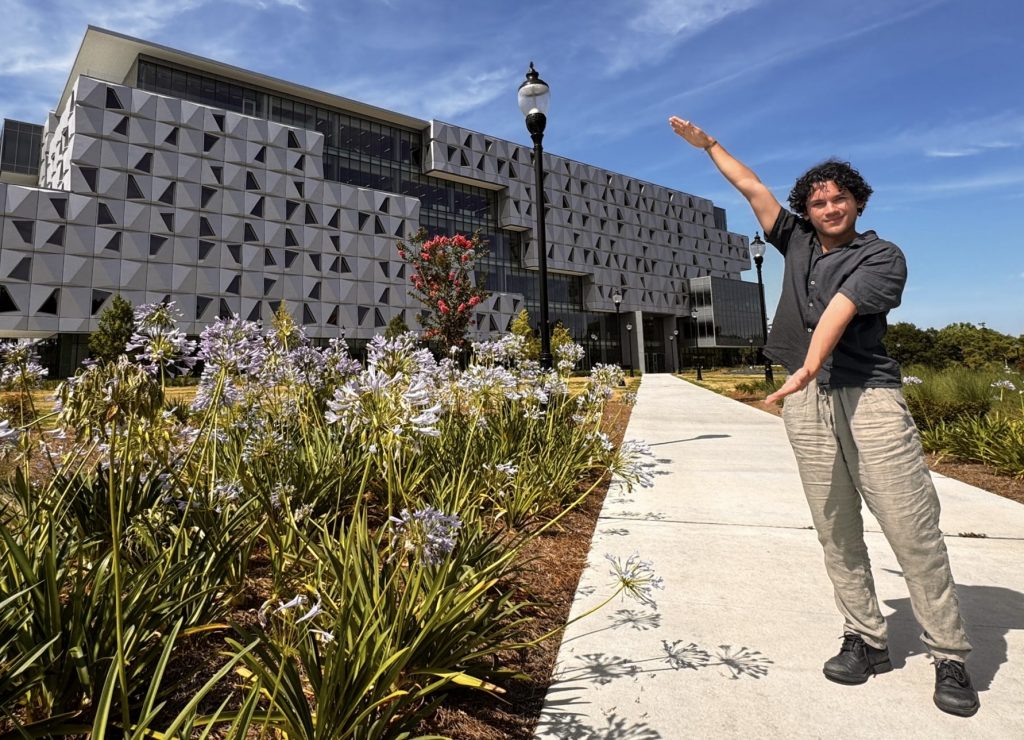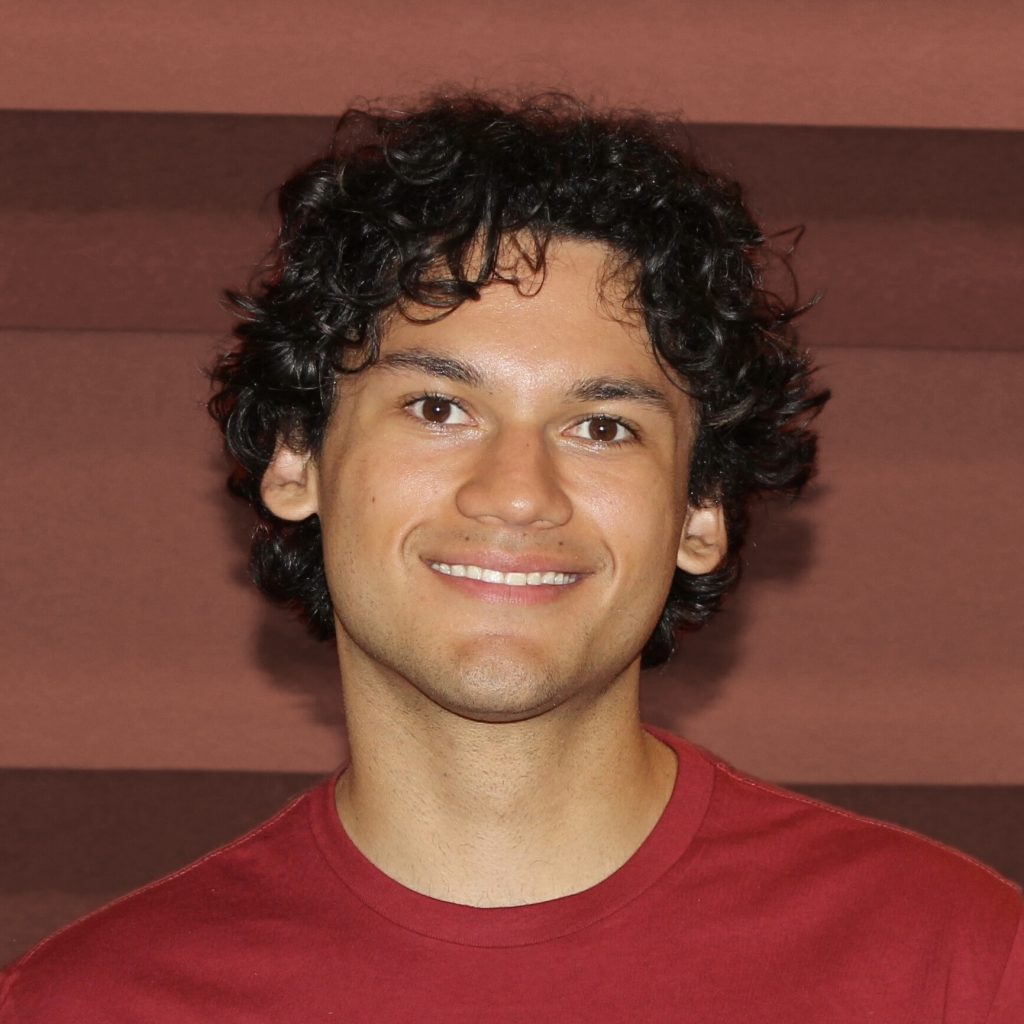By Ines Aviles-Spadoni, M.S., M.A., Research/Communications Coordinator

Christian Cardenas is spending his summer with the University of Florida’s Secure, Accessible, and Sustainable Transportation program – a paid internship sponsored by the National Science Foundation supporting talented undergraduate students involved in high-impact research exploring autonomous transportation challenges.
Cardenas, an undergraduate student from Grinnell College in Iowa, is expected to graduate next spring. He is majoring in sociology and statistics, which is not what a traditional transportation intern might be studying. But for Cardenas, data science and urban systems are what drew him to work with Siva Srinivasan, Ph.D., professor and associate director of the University of Florida Transportation Institute (UFTI).
The Grinnell College student said he became interested in the opportunity to intern at UF over the summer after participating in a similar research experience in summer 2024. During that experience, he developed a strong passion for spatial analysis and transportation safety.
“I spent my last summer as an undergraduate researcher at UMass Amherst creating an algorithm to categorize the safety of bicycle lanes across Massachusetts using ArcGIS,” he said.
Cardenas’s work this summer at UF with Srinivasan will involve analyzing geospatial data to better understand the safety of autonomous vehicles. The goal of this project is to identify patterns or conditions that could inform safer deployment strategies and infrastructure planning for autonomous vehicles.
Srinivasan explained that Christian is analyzing locations of conflicts between vehicles obtained as outputs from traffic and safety simulators to understand how these vary along an arterial corridor (for example what type of conflicts happen near intersections, at mid-block and near bus stops). He is also looking at differences between conflicts involving transit vehicles and those involving only passenger cars.
“Running simulations can quickly generate a lot of geo-spatial data on conflicts,” he said. “It takes significant effort to post-process these results to make meaningful inferences. Christian’s experience and expertise with GIS tools is of tremendous help here. We hope to use the procedure he has developed for future efforts, too.”
While in the program, Cardenas hopes to learn more about transportation data analysis and is eager to work with GIS and transportation modeling tools. And after he graduates next year, Cardenas plans to pursue graduate studies in data science or a field related to urban development. He says he doesn’t know yet which schools he will apply to, but he is interested in programs that focus on interdisciplinary research.

What is certain is that for Cardenas, transportation isn’t just about data; it’s also about people. Approaching the transportation field from a sociological and statistical lens gives him an incredibly unique perspective on making transportation affordable and safer for everyone.
“I’m passionate about ensuring that transit systems are safe and affordable,” Cardenas said. “As we transition toward emerging technologies like autonomous vehicles, it’s essential that we don’t just aim for efficiency but prioritize designing systems that protect vulnerable road users.”
Cardenas’ trajectory is an example that transportation is a multidisciplinary field requiring more than just engineers. The field will need professionals who can help build that bridge between technology and society. Cardenas, through his summer internship at UF, is helping to shape the future of transportation. Srinivasan agrees and emphasizes the importance of having a variety of academic backgrounds in the transportation field.
“It is great to work with Christian over this summer,” Srinivasan said. “As new data makes transportation research increasingly multi-disciplinary, students from non-civil engineering degree programs can bring new perspectives and tools, which are very rewarding.”
